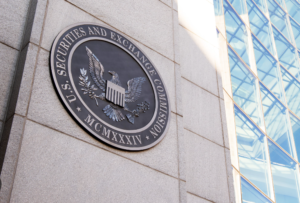$SPX $BTC $GLD
#debtcrisis #dollarfutures #USdebt #stockmarket #gold #Bitcoin #StephaniePomboy #Macroeconomy #Trump #inflation #marketsurge #fiscalpolicy
President Donald Trump’s re-election sent shockwaves through the financial markets, leading to a significant surge in major stock indices like $SPX. Bitcoin ($BTC) also saw a dramatic rise, reaching record highs as investor enthusiasm and speculation rose. Despite the initial optimism, however, concerns surrounding the long-term sustainability of this market euphoria are growing. Stephanie Pomboy, noted economist and founder of MacroMavens, warns that while short-term gains have certainly been realized, underlying factors could bode ill for the U.S. economy, particularly when considering its mounting debt position. In an economy where runaway fiscal spending and record-breaking government debt have become almost routine, the long-term stability of financial markets is more fragile than many might realize.
Pomboy brings attention to what is often referred to as the “doom loop” in fiscal policy. Essentially, this loop represents the gradual and dangerous feedback cycle where rising debt burdens lead to higher interest payments, which in turn crowd out other crucial areas of government spending. Ultimately, faced with ballooning interest expenses, the government may be forced either to cut valuable services or raise taxes, presenting a difficult political and economic decision to future administrations. While current low interest rates appear to make borrowing affordable, they mask the potential pain when rates inevitably rise or when economic shocks—such as inflation, geopolitical tensions, or a global slowdown—usher in an era of rapidly increasing borrowing costs. For now, both equity and cryptocurrency markets may seem disconnected from this problem, but the broader macroeconomic context suggests volatility could loom in the longer term.
Gold ($GLD) has traditionally been a safe haven for investors seeking to protect their wealth during periods of economic uncertainty. While the dollar remains the world’s reserve currency, Pomboy suggests its dominance may be tested should economic mismanagement or sustained inflationary pressure erode confidence. Recent trends might suggest the dollar’s future is uncertain under an extended Trump administration, especially when coupled with aggressive fiscal spending and mounting debt. The Federal Reserve’s decision to maintain or adjust monetary policy could become increasingly challenging amid these mounting problems, as they balance stable inflation with the need to maintain economic growth. For investors, the question becomes less about short-term gains and more about how to hedge against long-term uncertainty.
In a market driven by euphoria over recent gains in stocks and Bitcoin, it’s important to maintain awareness of potential risks brewing underneath the surface. While fiscal stimulus packages and low interest rates have propped up many sectors, they cannot mask the fundamental risks posed by ballooning government debt. Should the economy face significant headwinds in the near future—be it inflation or slower growth—investors may flock to gold as a store of value, while heightened volatility in the cryptocurrency space could also become a defining feature. Investors seeking to navigate an increasingly uncertain landscape should remain vigilant, as growth driven primarily by debt-fueled stimulus is rarely sustainable in the long term. In the current climate, while optimism reigns, the storm clouds of instability are far from gone.











Comments are closed.